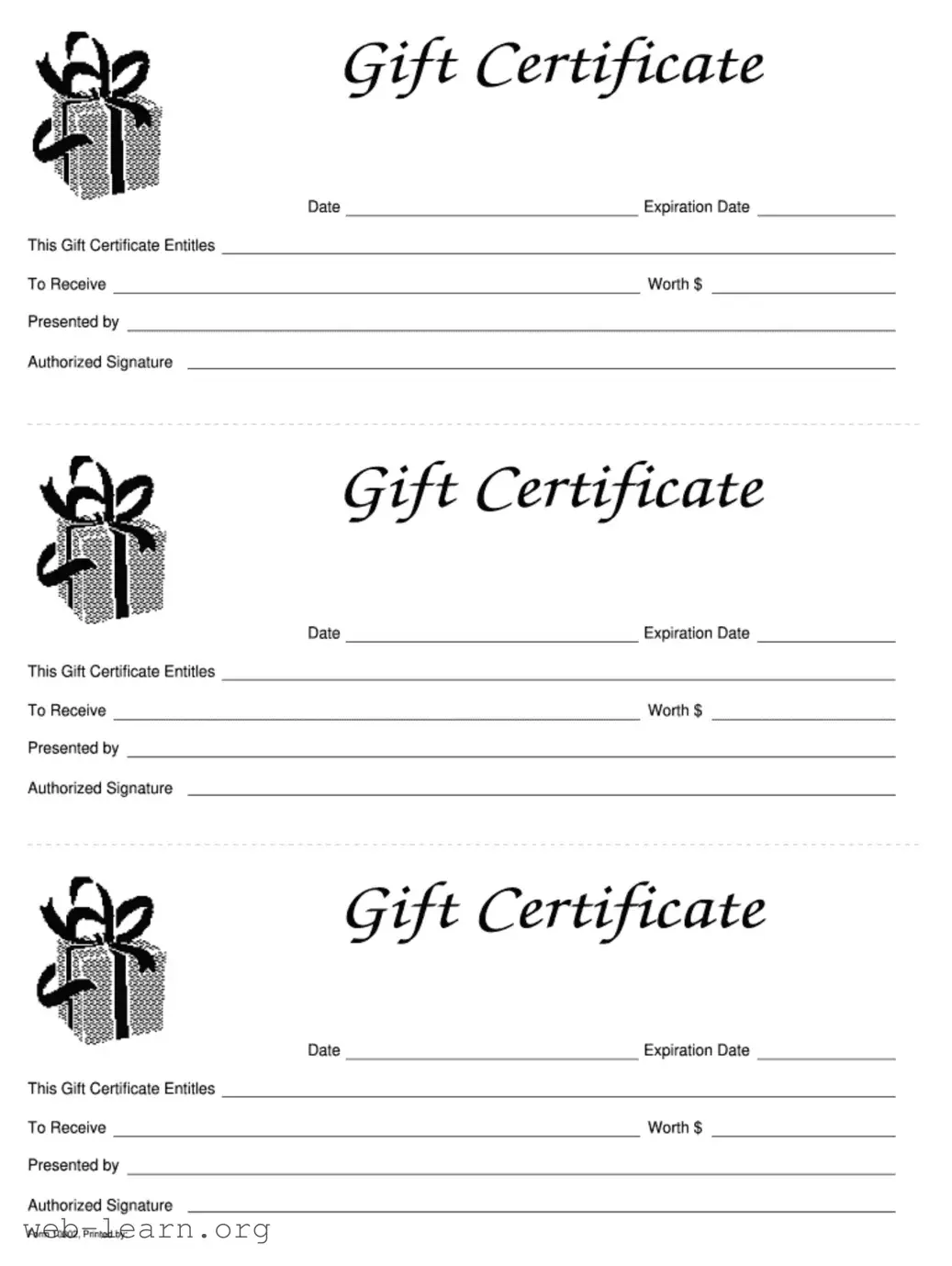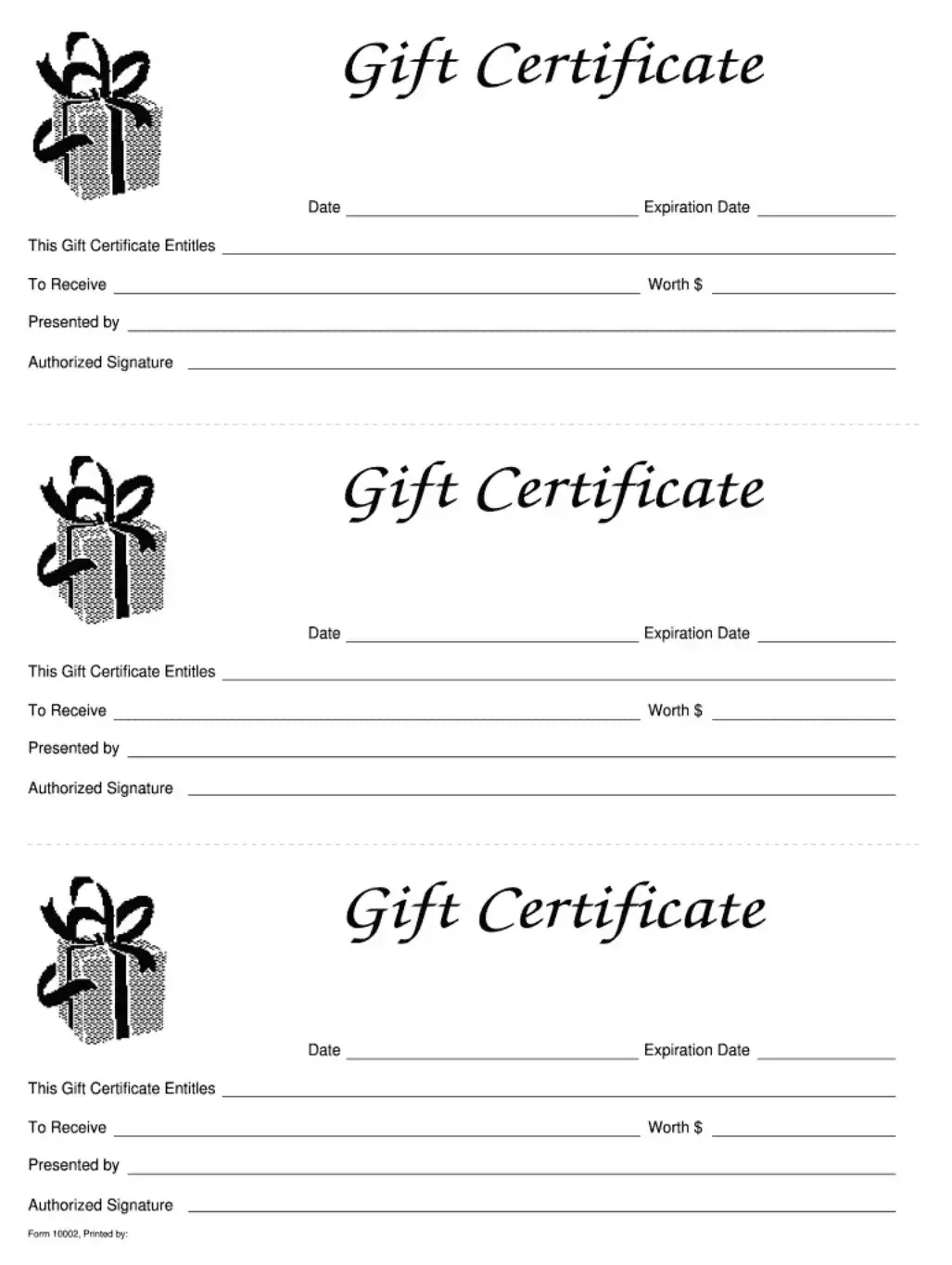Filling out a Gift Certificate form may seem straightforward, yet many individuals make common mistakes that can lead to confusion or the invalidation of the certificate. One frequent error is skipping required fields. Many forms clearly indicate which fields are mandatory, but users often overlook these instructions, resulting in incomplete submissions.
Another mistake involves entering incorrect recipient information. Errors in spelling names or providing the wrong email address can cause delays in delivery or misdirected certificates. It is essential to double-check these details to ensure that the recipient receives their gift.
Some individuals forget to select the appropriate occasion for the gift. Choosing an occasion helps personalize the experience and can be crucial for context. Omitting this information may not only affect the message but can also leave the recipient feeling confused.
Inaccuracies in the monetary value can also create problems. Occasionally, a purchaser may accidentally input the wrong amount, which can lead to dissatisfaction for the recipient. Verifying the intended amount is a crucial step in the process.
Many people fail to read the terms and conditions associated with the Gift Certificate. Ignoring these details can result in misunderstandings about expiration dates or restrictions on usage, which could diminish the value of the gift.
Using non-standard payment methods is another common pitfall. Some forms may only accept specific payment options, and failing to adhere to these guidelines can lead to rejected transactions. Knowing accepted payment methods in advance can streamline the process.
Additionally, some users submit the form without reviewing it. As a result, typos and other errors go unnoticed. A brief review can help catch mistakes before submitting, ensuring all details are accurate.
Not considering the delivery method forms another oversight. Many facilities offer various options, such as email or physical mail. Choosing the wrong method may result in delays or a less personal delivery.
Lastly, individuals often neglect to indicate any personal message. A personal touch can elevate the gift-giving experience, and omitting this aspect may make the gift feel less thoughtful. Including a note can enhance the recipient's enjoyment significantly.
Being aware of these common mistakes can help ensure a smoother process when filling out a Gift Certificate form. Attention to detail matters. By carefully reviewing each section and verifying all information, individuals can enhance the gift-giving experience for their recipients.

